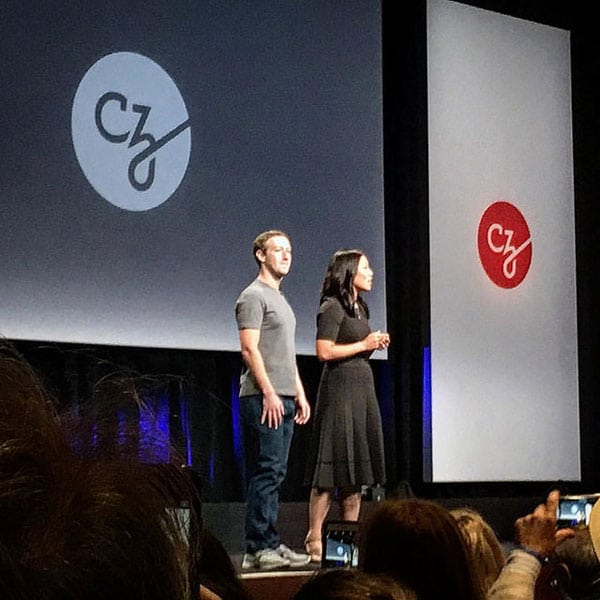
July 13, 2018; Next City and Mercury News
With a $250,000 donation, the Chan Zuckerberg Initiative (CZI) has stepped forward to support an effort to ease California’s affordable housing difficulties. Using the flexibility their LLC structure allows, CZI put its resources behind the effort to urge voters to support a November ballot initiative that will authorize the state to issue “$4 billion in general obligation bonds puts for housing-related programs, loans, grants, and projects, and housing loans for veterans.”
When Mark Zuckerberg and Priscilla Chan committed their large Facebook stock fortune to philanthropy, they chose to do it in a distinctive manner. Rather than establish a traditional philanthropic foundation using a 501c3 public charity model, they created the Chan Zuckerberg Initiative as a privately owned limited liability corporation. Their desire was, as NPQ noted at the time, to have “the flexibility to give to the organizations that will do the best work—regardless of how they’re structured.”
Now, they’re putting that flexibility to use. According to a CZI press release announcing their support of the ballot initiative, reported by Next City, “The measure will help more workers live in the same communities where they work, provide below-market interest rates with low- to no-down payment for veterans to buy homes and help low and very low-income households have access to affordable housing.”
It should be no surprise that increasing affordable housing would resonate with CZI’s leadership. Its roots are in the Bay Area, where Facebook is based and where, according to a study by the nonprofit California Housing Partnership, as reported by Pacific Standard, “Workers in several Bay Area counties would need to earn four times the minimum wage to pay the median rent for an apartment. In Oakland, workers would have to make nearly $50 an hour to afford the median Alameda County rent of $2,553. To afford San Mateo County’s median rent of $3,395, workers would have to make more than $65 an hour, which is close to six times the state minimum wage.” In other words, the wealth now being used to remediate the problem comes from an entity that helped create the problem in the first place.
A group of low income tenants in Menlo Park are not allowing that point to go unexplored, writing this note to the young billionaire on Facebook.
To: Mark Zuckerberg
We are writing this letter to bring to the attention of Mr. Mark Zuckerberg that the current displacements of families in East Menlo Park have been extremely affected by the expansion of Facebook in the area in which a multitude of families have been displaced of their homes because of the rents increases that Facebook has directly or indirectly helped boost.
Sign up for our free newsletters
Subscribe to NPQ's newsletters to have our top stories delivered directly to your inbox.
By signing up, you agree to our privacy policy and terms of use, and to receive messages from NPQ and our partners.
Right now there are many families that have been displaced and many more waiting to become homeless because there is not rent control in Menlo Park and because Facebook has affected the most vulnerable communities in East Menlo Park. These families work two or three jobs just to keep up with basic needs and now with the rent increments these families, whose are children, adults and seniors are on the verge to become collateral damage.
We, the, Redwood Landing Tenant Union would like to express our most sincere feeling regarding the damage that Facebook has created to our communities. The new owners of our buildings, which go by different names such as Menlo Gate LLC and Redwood Landing Properties have been using Facebook propaganda to attract investors in real estate.
If Mr. Mark Zuckerberg cares about what happens in the community in which he has settled his billion worth [sic] business, he would not hesitate to say a word and reflect on the deep concerns of the community that is suffering from a business effect.
In supporting this effort to increase state government’s investment in affordable housing, CZI is building upon its more traditional gifts to other housing-focused nonprofits. According to the Mercury News, “In November, the organization gave $500,000 to support a collaboration of affordable housing nonprofits. The Chan Zuckerberg Initiative also has contributed to the TechEquity Collaborative, which advocates for affordable housing solutions, and Community Legal Services in East Palo Alto, which provides aid to families facing eviction and other legal challenges.”
Affordable housing advocates hope that CZI’s action will signal to others to join the fight. Pilar Lorenzana, deputy director of affordable housing advocacy organization SV@Home, told the Mercury News that “it’s especially encouraging to see the organization step up to back state-level policies. She hopes other tech-backed funds will follow suit. This is something that we really need and hopefully the rest of the sector pays attention and jumps in as well.”
CZI’s efforts to increase affordable housing parallel the plans of Facebook, the source of CZI’s resources, to expand its corporate headquarters in Menlo Park, California. As announced last year, the expanded campus will include 1,500 residential units, with 225 being rented below market rates. By including this housing component, Facebook recognizes that the influx of highly paid workers driven by a booming tech industry has stretched the limits of available housing and pushed costs higher. CZI’s LLC structure gives it latitude to play a more active role in setting the public policies needed to solve a problem that, in part at least, they caused.
Putting affordable housing on their priority list is an important first step for CZI. Will others join them to support, in the short term, the services needed by those most affected by housing problems? Will they lead a coalition of philanthropists and corporate leaders to spearhead the kind of state and national policy effort to make a dent in such a large problem? Their structural choice in setting up the Chan Zuckerberg Initiative makes them flexible and agile, but some may still find the whole situation somewhat ironic and inadequate.—Martin Levine











